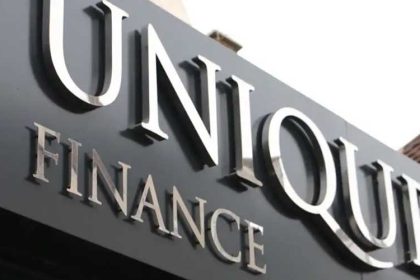\n
The entry of more investment companies and rich people, the legal formalization of Bitcoin as an asset and as a result the growth of the price of Bitcoin; These can be the benefits of a Bitcoin ETF. On the other side of the coin, this phenomenon has its own challenges and disadvantages.
In this article, we will explain ETF comprehensively and in simple language by answering the following questions:
- What is a Bitcoin ETF and how does it work?
- What are the advantages and disadvantages of Bitcoin ETF?
- What is the impact of Bitcoin ETF adoption on price?
What is a traditional ETF?
Before we go to the Bitcoin ETF, it is better to take a step back and see what is an ETF at all?
An exchange-traded fund (ETF) is a fund in which there are one or more assets and individuals can invest in the assets they want by buying shares of that fund.
Buying and selling of ETF shares is done through the stock exchange, and its transaction is like a normal share transaction; Therefore, it is official and in accordance with the stock exchange regulations of a country.
Today, there are ETFs for very important and practical assets such as gold and oil, and they are traded every day on the stock exchanges of different countries around the world.
Investors who buy ETF shares can invest in it without going through complicated buying processes and without experiencing the risk of holding an asset.
For example, if you buy a share of a gold ETF, you are investing in gold without owning actual gold.
What is a Bitcoin ETF?
Simply put, a Bitcoin ETF is a fund that holds a large amount of actual Bitcoin or is tied to the Bitcoin futures market (relative to the type of fund). Individuals and legal entities can trade Bitcoin ETF shares like a stock on the stock exchange. The stock price of the fund rises and falls based on the price of Bitcoin.
Bitcoin ETF shares are traded on stock exchanges instead of digital currency exchanges. It is obvious that the transactions are done only during the hours when the stock exchange of a country is open.
In general, there are two types of exchange-traded funds for Bitcoin:
- Physical ETFs: This type of fund is fully supported by real Bitcoin; The big risk with that is that it is very difficult to hold real Bitcoins (in high volume).
- Futures ETF: This type of fund is not directly supported by Bitcoin; Rather, it uses the futures market. The full explanation of futures contracts is not included in this article; But just know that the real bitcoin is not stored in it, and the value of the stock goes up and down only with the price of bitcoin.
Why not buy Bitcoin itself?
One of the main questions that may be asked about a Bitcoin exchange-traded fund is what exactly is the advantage of a Bitcoin ETF for an investor that would make someone buy shares of Bitcoin instead of Bitcoin itself. Maybe it is better for an ordinary investor to buy his own Bitcoin; But for Wealthy individuals or investment companiesBuying ETF shares is a great opportunity; for the following reasons:
Legal formality of ETF
A Bitcoin ETF is recognized by regulatory bodies. If you are a large organization and you are worried about buying Bitcoin directly for legal reasons, you can invest in its exchange fund to be covered and supported by legislative institutions. For example, in the United States, the Securities and Exchange Commission (SEC) is directly responsible for protecting ETF investors from numerous market risks.
ETFs are also inheritable under securities laws, a rare benefit for those concerned about the fate of their bitcoins after death.
Ease of investment and maintenance
For someone who has worked in the stock market, entering the world of digital currencies seems complicated. To invest in Bitcoin, such a person can buy a share of the fund like a normal share in the stock market.
If you are a rich person and want to buy a lot of bitcoins, you may worry about the safe keeping of bitcoins as well as the liquidity challenge. In this case, buying ETF shares instead of real bitcoins can make sense.
Tax discount or exemption
In most countries, ETFs include tax exemptions or rebates. For an investor who has a lot of bitcoins, it is risky to fall out with the tax authorities and may prefer to buy ETFs instead of real bitcoins.
Diversification of the investment portfolio
In an exchange fund, in addition to Bitcoin, other assets such as company shares or gold may be invested; Therefore, a person who owns a share of an ETF can benefit from the profits of all the assets in the fund at the same time.
In fact, investing in ETFs is one of the best ways to help you implement this idea: “Don’t put all your eggs in one basket.”
How will ETF adoption affect the price of Bitcoin?
The adoption of ETFs for Bitcoin (especially in the US as the world’s largest capital market) is always mentioned as one of the factors that can send the price of the king of digital currencies to the “moon”.
From 2013 to 2022, the US Securities and Exchange Commission has rejected various requests from large companies to create a Bitcoin exchange fund. However, now (late 2023) as we update this article it seems the wait is over.
Maybe after the launch of the first Bitcoin ETF, the market will fall in the short term according to the “buy on rumors and sell on news” strategy; But in the long run, the chances of large investors and wealthy individuals entering are high, and this could mean injecting millions of dollars of capital into the market.
With the help of ETFs, institutional investors legally invest in Bitcoins and no longer have to worry about laws and regulations, inheritance, and safe custody of Bitcoins.
But this was one side of the coin and considered the other side of the coin that could change the future of Bitcoin in the long run. We go to the bitter part of the matter; The risks and disadvantages of this fund.
Potential Disadvantages of Bitcoin ETFs
Many members of the Bitcoin community believe that ETFs for Bitcoin are not only not useful, but can also threaten the future of this digital currency. They usually give the following reasons for their claim:
centralism
A centralized fund plan for Bitcoin over time could threaten Bitcoin’s primary goal of decentralization. Pro-Bitcoin proponents believe that the Bitcoin ETF will lead to greater concentration and monopoly of this asset. According to them, it is dangerous for monopoly investment funds to own a large part of bitcoins.
Bitcoin ownership is not real
In a stock exchange fund, the shareholders each own a part of this fund; But clearly they will not be the true owner of the bitcoins they have invested in.
In fact, according to the rules of Bitcoin, someone owns his Bitcoins who has the private key or support words of his wallet; Something that doesn’t happen with a Bitcoin ETF.
The issue of forks
When a hard fork occurs in the Bitcoin network (such as the Bitcoin Cash hard fork), we have to trust the fund to distribute the new digital currency resulting from the fork.
Although each ETF fund will have many customers and investors; But it will be the fund manager who will make the basic decisions about forked coins, for example.
Privacy risk
The privacy of bitcoin owners is another concern of bitcoiners. To operate on the stock exchange, individuals are authenticated and personal information of traders is recorded; Something that could make privacy in Bitcoin less prominent and governments could have more control over Bitcoin holders.
Conclusion
The adoption of a bitcoin exchange-traded fund, or ETF, would give the king of digital currencies a better legal footing and likely open the door to a new wave of big investors.
Although this is generally seen as positive for the price, in the long run it may push Bitcoin towards concentration. For a nascent asset like Bitcoin, which is decentralized in nature, it is not yet possible to say with certainty how effective the ETF will be.
After several years of waiting, it seems that the Bitcoin exchange-traded fund has finally been accepted in the United States. what is your opinion? Is Bitcoin ETF good or bad? Write in the comments section of this article.
\n
\n
RCO NEWS


















